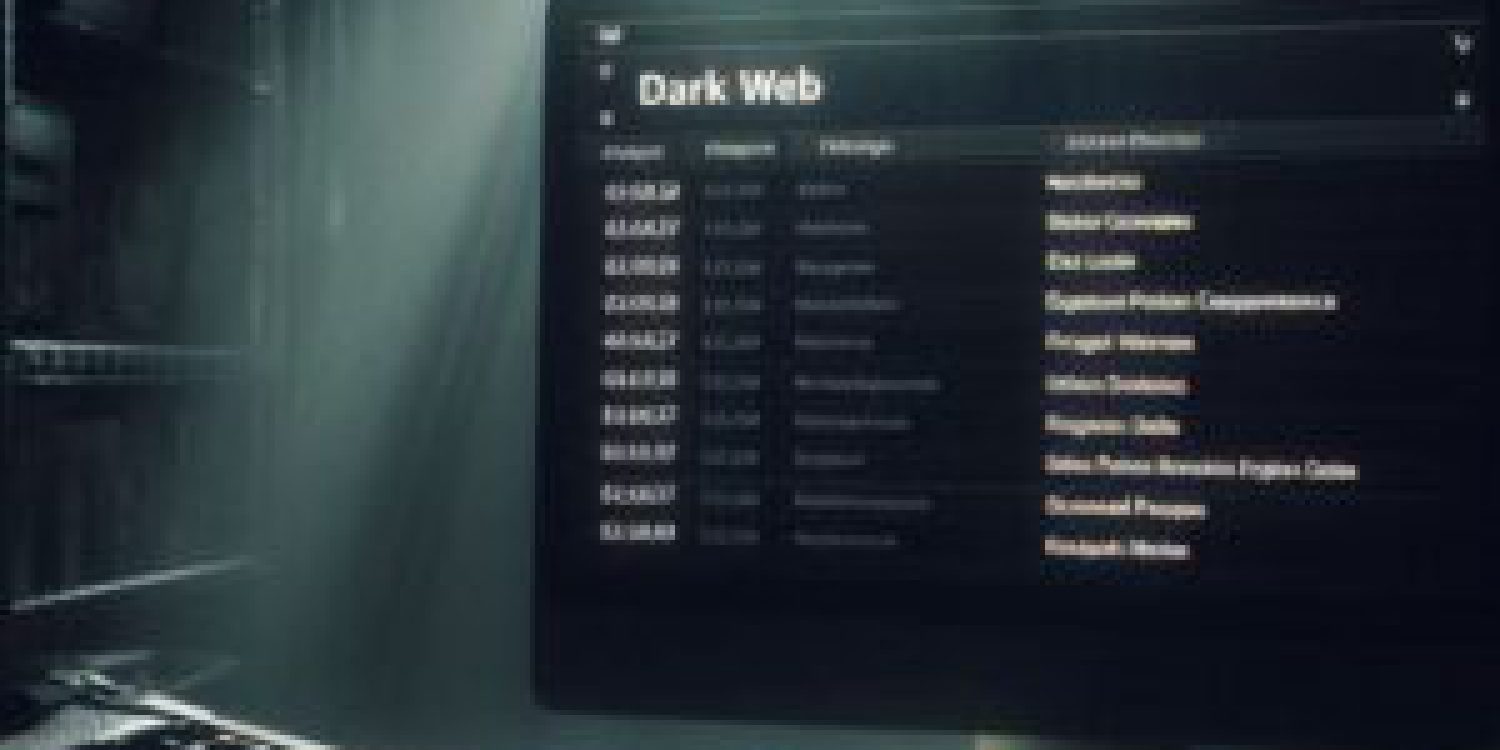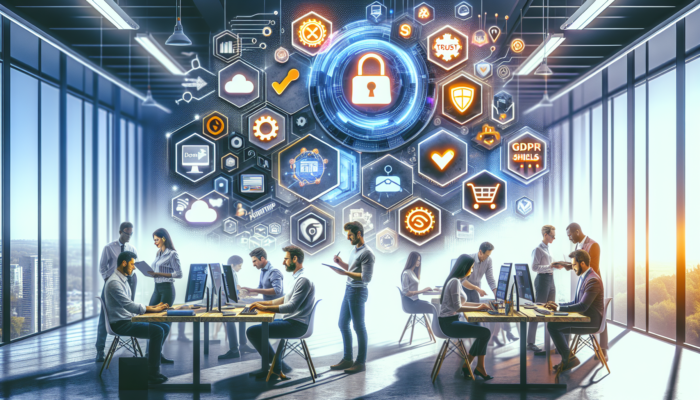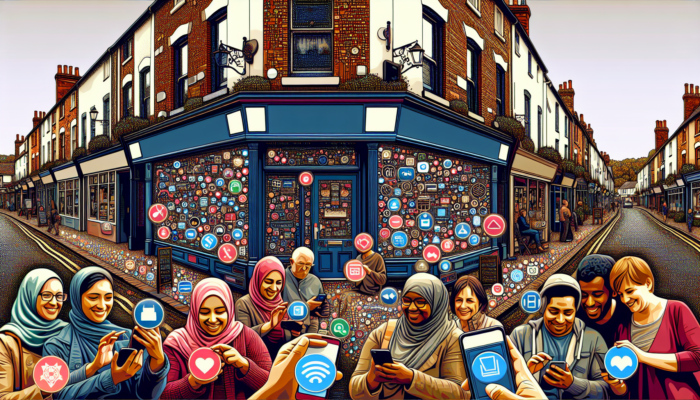Table of Contents
ToggleUnraveling the Complex World of Dark Web Investigations
The Dark Web represents a hidden segment of the internet that remains largely inaccessible to standard search engines. Gaining entry to this secretive network demands the use of specialized software, unique configurations, or specific permissions, which adds to its mystique. This shadowy realm is defined by high levels of user anonymity and untraceability, making it an attractive base for a variety of illicit activities. While it is often linked to illegal operations including drug trafficking, arms sales, and human trafficking, it also serves as a marketplace for cybercriminals to trade stolen personal data, credit card information, and other sensitive materials. Within this clandestine environment, users can engage in illegal transactions, join forbidden forums, and connect with communities that operate outside the law, all while feeling shielded from potential detection by authorities.
Contrasting the conventional surface web, the Dark Web is structured on an intricate framework that expertly conceals users’ identities through advanced encryption techniques and multiple layers of anonymity. To access this hidden digital realm, users typically rely on specialized software like Tor (The Onion Router), which anonymizes online activities by routing internet traffic through a network of volunteer-operated servers. This elaborate routing method significantly complicates the efforts of anyone attempting network surveillance or traffic analysis, rendering it exceptionally difficult to trace a user’s location or actions. Although the Dark Web can serve as a secure communication platform for whistleblowers and political dissidents, its notorious reputation largely stems from its connections to criminal enterprises and illegal activities, creating formidable challenges for law enforcement agencies.
Key Strategies for Effectively Navigating the Dark Web
- The Dark Web is a concealed part of the internet that necessitates specific software for access, frequently linked to unlawful activities.
- Engaging with the Dark Web involves considerable risks, including identity theft, financial fraud, and exposure to explicit content.
- DarkSearch is an essential tool that enables users to explore the Dark Web safely through its anonymous search engine capabilities.
- Users may discover a combination of illicit products and services, stolen data, black market activities, and legitimate content on the Dark Web.
- To ensure safety during Dark Web exploration, it is crucial to utilize a secure VPN, be cautious with links, and carefully manage personal data sharing.
Recognizing and Mitigating the Risks Associated with the Dark Web
The Dark Web presents significant risks not only to individuals but also to society as a whole. It has become a hotspot for criminal activities, including the widespread sale of narcotics, firearms, and stolen personal information, which fuels the operations of various criminal organizations. This perilous environment heightens the likelihood of identity theft, financial fraud, and other cybercrimes that can severely impact unsuspecting users. The anonymity provided by the Dark Web complicates law enforcement’s ability to track and apprehend offenders, granting cybercriminals a false sense of security.
Furthermore, the Dark Web plays a troubling role in facilitating human trafficking and exploitation. Its unregulated and anonymous nature provides a safe haven for traffickers, resulting in a disturbing increase in the online exploitation of vulnerable populations, particularly young individuals who may be coerced into sex work or other forms of modern slavery. Additionally, the Dark Web often serves as a breeding ground for extremist ideologies and terrorist propaganda, posing serious threats to national security and public safety. This reality emphasizes the need for ongoing vigilance and proactive measures by society to combat these dangers.
The extensive presence of illicit content and activities on the Dark Web has far-reaching societal implications. It fosters a culture of lawlessness that undermines efforts to create a safe online environment. Therefore, it is crucial for users to remain aware of the dangers associated with the Dark Web and to take proactive steps to protect themselves from its potentially harmful effects.

Expert Tips for Safely Navigating the Dark Web with DarkSearch
DarkSearch is an innovative search engine specifically developed to empower users to explore the Dark Web in a secure and private manner. This advanced tool allows individuals to search for specific content without jeopardizing their anonymity or personal privacy. DarkSearch employs robust encryption and privacy safeguards, ensuring that users can navigate the Dark Web without the looming fear of being tracked or monitored by malicious entities.
One of the standout features of DarkSearch is its ability to provide users with a carefully curated selection of verified and trustworthy Dark Web websites. This functionality is crucial for helping users avoid stumbling upon illegal or harmful content, instead guiding them toward reputable resources and information. Moreover, DarkSearch includes built-in security measures designed to protect users from fraudulent sites and phishing scams, significantly reducing the risk of becoming a victim of cybercrime during their browsing experience.
Besides enhancing security, DarkSearch opens up a wealth of information and resources that are typically inaccessible on the surface web. This includes niche forums, marketplaces, and communities dedicated to a wide range of interests, allowing users to connect with like-minded individuals in a secure and private environment. By leveraging the capabilities of DarkSearch, users can responsibly explore the Dark Web, sidestepping the pitfalls associated with illegal activities while still accessing valuable information and insights.

Diving into the Varied Content Available on the Dark Web
The Dark Web boasts a diverse array of content, encompassing both legitimate and illegal activities. Its notorious reputation primarily stems from its role as a marketplace for illicit goods and services, including the trade of drugs, firearms, counterfeit currencies, and stolen personal data. This secretive environment is particularly appealing to criminals seeking to conduct transactions while minimizing the risk of detection by law enforcement.
In addition to these illegal marketplaces, the Dark Web features forums and groups discussing a myriad of topics, including hacking, cybercrime, political activism, and whistleblowing. These platforms offer individuals a secure space to engage in controversial discussions and share information without the fear of censorship or surveillance. However, they can also become breeding grounds for criminal behavior and extremist views, posing significant threats to public safety and national security.
Despite its connections to illegal activities, the Dark Web also serves essential functions. It provides a secure platform for whistleblowers and activists to disseminate crucial information and highlight issues of corruption and human rights violations without the threat of retribution. Additionally, the Dark Web contains a wealth of resources and information that may be censored or unavailable on the surface web, making it an invaluable tool for those seeking uncensored knowledge and alternative perspectives.
Essential Safety Practices for Navigating the Dark Web
While exploring the Dark Web can expose users to various risks, there are numerous strategies to safeguard oneself against potential dangers. Utilizing specialized software like Tor enables secure browsing of the Dark Web. Tor encrypts your internet traffic, effectively concealing your location and online activities from any potential surveillance or traffic analysis, thereby empowering users with a greater sense of privacy.
Exercising caution is paramount during Dark Web exploration. It is vital to avoid clicking on unknown links or downloading unexpected files, as the Dark Web is filled with malicious sites aimed at stealing sensitive information or infecting users’ devices with malware. Users can maintain their security by limiting their visits to trusted and verified websites while navigating this hidden digital landscape.
Additionally, individuals should refrain from sharing personal information or engaging in transactions on the Dark Web. The inherent anonymity of this environment complicates the verification of merchants or buyers, significantly increasing the risk of scams and fraud.
Employing a virtual private network (VPN) can greatly enhance security while exploring the Dark Web. A VPN encrypts your internet traffic and masks your IP address, making it more difficult for malicious actors to trace or monitor your online activities.
By adhering to these safety guidelines and exercising caution during Dark Web explorations, users can significantly reduce their exposure to potential threats and protect themselves from the dangers associated with cybercrime.
Understanding the Legal and Ethical Dimensions of Using DarkSearch
When utilizing DarkSearch or engaging with the Dark Web, individuals must be acutely aware of the legal and ethical implications involved. Accessing certain types of content or participating in specific activities on the Dark Web may violate local laws or ethical standards, potentially leading to serious legal consequences or moral dilemmas.
A critical legal consideration when using DarkSearch is the risk of encountering unlawful content or activities. Users must recognize that accessing illegal marketplaces or engaging in criminal activities on the Dark Web can result in severe legal repercussions, including prosecution and imprisonment. Therefore, exercising caution and adhering to local laws while exploring the Dark Web is essential to avoid unintentional violations.
Equally important is the understanding of the ethical ramifications associated with using DarkSearch. Users should be mindful of the dangers of engaging with harmful content or facilitating illegal actions on the Dark Web. This includes avoiding transactions involving illicit goods or services, steering clear of participating in criminal enterprises, and promptly reporting any illegal activities encountered during their exploration.
When accessing sensitive data or discussing controversial topics on the Dark Web, it is crucial to acknowledge the moral implications. Treating such subjects with care and empathy is essential, as it recognizes the potential impact on individuals or communities affected by these issues.
By remaining vigilant and considering the legal and ethical factors while using DarkSearch, individuals can navigate the Dark Web responsibly and safely.

Forecasting Future Developments in the Dark Web: Innovations and Consequences
The impending landscape of the Dark Web is set for notable advancements and implications that could drastically influence its future direction. As technology continues to evolve, concerns regarding the potential for increasingly sophisticated cybercriminal activities flourishing within the Dark Web are escalating. Innovations in encryption techniques, anonymization technologies, and decentralized networks may further complicate law enforcement’s ability to monitor and control illegal activities in this hidden realm.
Moreover, the significance of international collaboration in tackling the challenges posed by the Dark Web cannot be overstated. Given that illicit operations on the Dark Web frequently transcend national borders, the necessity for cooperative actions among governments, law enforcement agencies, and technology companies becomes critically important. This includes sharing intelligence, coordinating efforts, and establishing regulatory frameworks to mitigate the risks associated with the Dark Web, highlighting the essential roles played by each entity in addressing this global issue.
Additionally, ongoing discussions surrounding potential government interventions aimed at combating unlawful activities on the Dark Web while safeguarding individual privacy rights are gaining momentum. Striking a balance between addressing cybercrime and protecting freedom of expression and internet privacy presents a complex challenge. As policymakers navigate these intricate considerations, they must prioritize informed decision-making to ensure that legislative measures effectively combat illegal activities on the Dark Web without infringing upon individual rights.
Future developments in the Dark Web will have profound implications for cybersecurity, law enforcement, personal privacy rights, and global security. By staying informed about potential trends and changes, individuals can better understand the evolving landscape of the Dark Web and take proactive steps to protect themselves from its associated threats.
Frequently Asked Questions About the Dark Web Clarified
What is a Dark Web search engine, and how does it operate?
A dark web search engine is specifically designed to assist users in exploring the Dark Web, a hidden segment of the internet not indexed by conventional search engines. This tool empowers individuals to discover and access concealed websites and exclusive content that is typically unreachable through standard web browsers, thus enhancing their exploration experience.
How do dark web search engines work?
Dark web search engines utilize specialized algorithms to crawl and index content located within the hidden corners of the Dark Web. These engines access concealed websites and extract information, making it searchable for users who wish to explore this hidden digital landscape more effectively and efficiently.
Is using a dark web search engine legal?
Utilizing a dark web search engine is not inherently illegal, as it serves merely as a tool for accessing content on the Dark Web. However, users must recognize that the Dark Web is often associated with illegal activities, and engaging with certain content or participating in unlawful actions may violate the law.
What risks are associated with using a dark web search engine?
Several risks accompany the use of dark web search engines, including exposure to illegal and harmful content, potential malware attacks, and the threat of being targeted by cybercriminals. Exercising caution and implementing appropriate security measures is essential when accessing the Dark Web to mitigate these risks.
Can I access the Dark Web without a dark web search engine?
Technically, it is possible to access the Dark Web without a search engine by using specialized software like Tor, which allows users to browse anonymously and reach hidden websites. However, utilizing a dark web search engine can simplify the process of finding specific content and enhance navigation through the Dark Web.
References:
Pros and Cons of Internet Usage – Good and Bad Effects. https://thetechprint.com/pros-and-cons-of-internet-usage
Is it Illegal to Access the Dark Web? – Exploring the Dark Corners of the Digital World: A Tale of Mexican Hackers. https://www.hackersmexicanos.com/is-it-illegal-to-access-the-dark-web/
The post Deep Search: Unveiling the Invisible Dark Web appeared first on Ezi Gold.

















18 Comments
Ah, the Dark Web—a realm where the motto seems to be, “If you can’t find it on Google, you probably don’t want to.” It’s fascinating how this underbelly of the internet has carved out its own identity, kind of like that friend at a party who lurks in the corner, always with a mysterious story to tell, but you’re not quite sure you want to sit down and hear it.
You’ve captured that vibe perfectly! The Dark Web feels like an uncharted territory that’s both intriguing and a bit unsettling. It’s crazy to think about the countless stories floating around down there, right? While some of it is shady business, there’s also a ton of interesting content – like forums dedicated to privacy rights or spaces for whistleblowers.
“Curious to dive a little deeper? Check out this intriguing exploration of the Dark Web that might just give you the stories you didn’t know you were missing!”
https://ai.ezi.gold/emailoctopus
You’ve captured that essence perfectly. The Dark Web definitely has an allure, almost like a vault of secrets begging to be explored, but it’s a tricky place. It’s interesting to think about its dual nature—on one side, it offers anonymity that is vital for activists and those living under oppressive regimes; on the other, it’s a haven for less savory activities.
“Curious about the stories lurking in the shadows? Dive deeper into the mysteries of the Dark Web with our latest exploration—just a click away!”
https://ai.ezi.gold/pilot
Your insights on the Dark Web really highlight the duality of its nature—it serves as both a refuge for illicit activities and a hub for those seeking anonymity for legitimate reasons, such as whistleblowers or activists living under oppressive regimes. I often wonder about the ethical implications of exploring this realm. While it’s vital for law enforcement and researchers to delve into these shadowy corners for the sake of safety and awareness, it raises questions about the balance between security and privacy.
Your exploration of the Dark Web truly highlights its dual nature—a space both dark and complex, serving as a refuge for illicit activities but also a critical area for those seeking privacy and security in an increasingly surveillance-oriented world. It makes me reflect on the broader implications of anonymity in our digital lives.
Your exploration of the Dark Web really sheds light on a complex topic that often raises more questions than answers. It’s fascinating to think about how, while the surface web provides us with an abundance of accessible information and communication tools, the Dark Web exists as a parallel universe, filled with both peril and intrigue.
The insights shared in your post on the Dark Web shine a light on a facet of the internet that is often shrouded in stigma and misunderstanding. It’s fascinating how this hidden part of the web holds an ambiguous position in our society—while it certainly fuels many illicit activities, it also serves as a refuge for those seeking freedom from oppression.
Your exploration of the Dark Web really highlights the duality of digital spaces. It fascinates me how this hidden layer of the internet, often overshadowed by its illicit associations, also plays a significant role in cybersecurity discussions. For instance, ethical hackers and researchers often delve into these undercurrents to understand cyber threats better and develop strategies to combat them. It’s a reminder that while anonymity can breed criminal activity, it can also serve as a shield for whistleblowers and activists in oppressive regimes. I’m curious—do you think the benefits of this anonymity can ever outweigh its risks, especially in contexts where free speech is under threat? It’s such a complex balance, and I’d love to hear others’ thoughts on how we navigate this realm responsibly.
You’ve touched on a really important point about the complexity of anonymity online. The duality of digital spaces is something I often grapple with too. On one hand, the Dark Web can feel like this shadowy realm populated by nefarious activities, but on the other, it serves as a refuge for those who need it most, like whistleblowers and activists. It really makes you think about who gets to define what constitutes “good” versus “bad” behaviors in that space.
Your exploration of the Dark Web highlights the duality of this hidden world—where anonymity can shield both the virtuous and the nefarious. It’s intriguing to think about the role this environment plays in broader societal issues, such as privacy rights and the balance between security and surveillance.
Your exploration of the Dark Web’s complexities touches on a critical issue in today’s digital landscape. It’s fascinating how this hidden sphere, while often associated with crime, also reflects a deeper commentary on privacy, freedom, and the limits of regulation.
The exploration of the Dark Web as you’ve articulated sheds light on its dual nature—it is a realm marked not only by illicit activities but also by nuanced interactions that the conventional surface web does not encapsulate. Your point on user anonymity is particularly salient; it raises ethical questions about the extent to which anonymity can protect freedom of expression versus being a shield for criminal enterprises.
Your exploration of the Dark Web highlights the inherent complexities and the dual nature of this hidden segment of the internet. It serves as a fascinating case study of how technology can be wielded for both constructive and destructive purposes. While it is easy to focus solely on its darker facets—such as the illegal activities you mentioned—the Dark Web also raises important questions about privacy, freedom of expression, and the balance between security and civil liberties.
Your exploration of the Dark Web highlights a fascinating contradiction in our digital age. On one hand, it embodies the ideal of free speech and anonymity, offering a refuge for whistleblowers and activists, especially in oppressive regimes. Yet, as you pointed out, this same anonymity facilitates dark and illicit activities, creating a complex moral landscape.
You’ve touched on a critical aspect that often gets overlooked. The Dark Web really does create this unique paradox where freedom and danger coexist. It’s striking to think about how individuals facing persecution can find a voice there, while simultaneously, it’s a haven for activities that undermine safety and trust.
You’ve raised some critical points about the Dark Web and its multifaceted nature. It’s fascinating how its very anonymity can create both a haven for nefarious activities and a space for individuals seeking genuine privacy. This complexity reminds me of discussions around encryption technology and the ongoing debate between security and privacy in the digital age.
Your exploration of the Dark Web is quite thought-provoking, particularly the way you highlight its dual nature. While it’s undoubtedly a breeding ground for illicit activities, I wonder if there’s a broader conversation to be had about the conditions that foster this kind of underground economy.
Your exploration of the Dark Web brings to light significant issues that often escape mainstream dialogue. The anonymity it provides can facilitate both unlawful activities and crucial avenues for free speech, especially in oppressive regimes. Interestingly, there are parallels between discussions on the Dark Web and the ongoing debates surrounding encryption technologies. While advocating for user privacy, the challenge remains in balancing that with the potential for abuse.